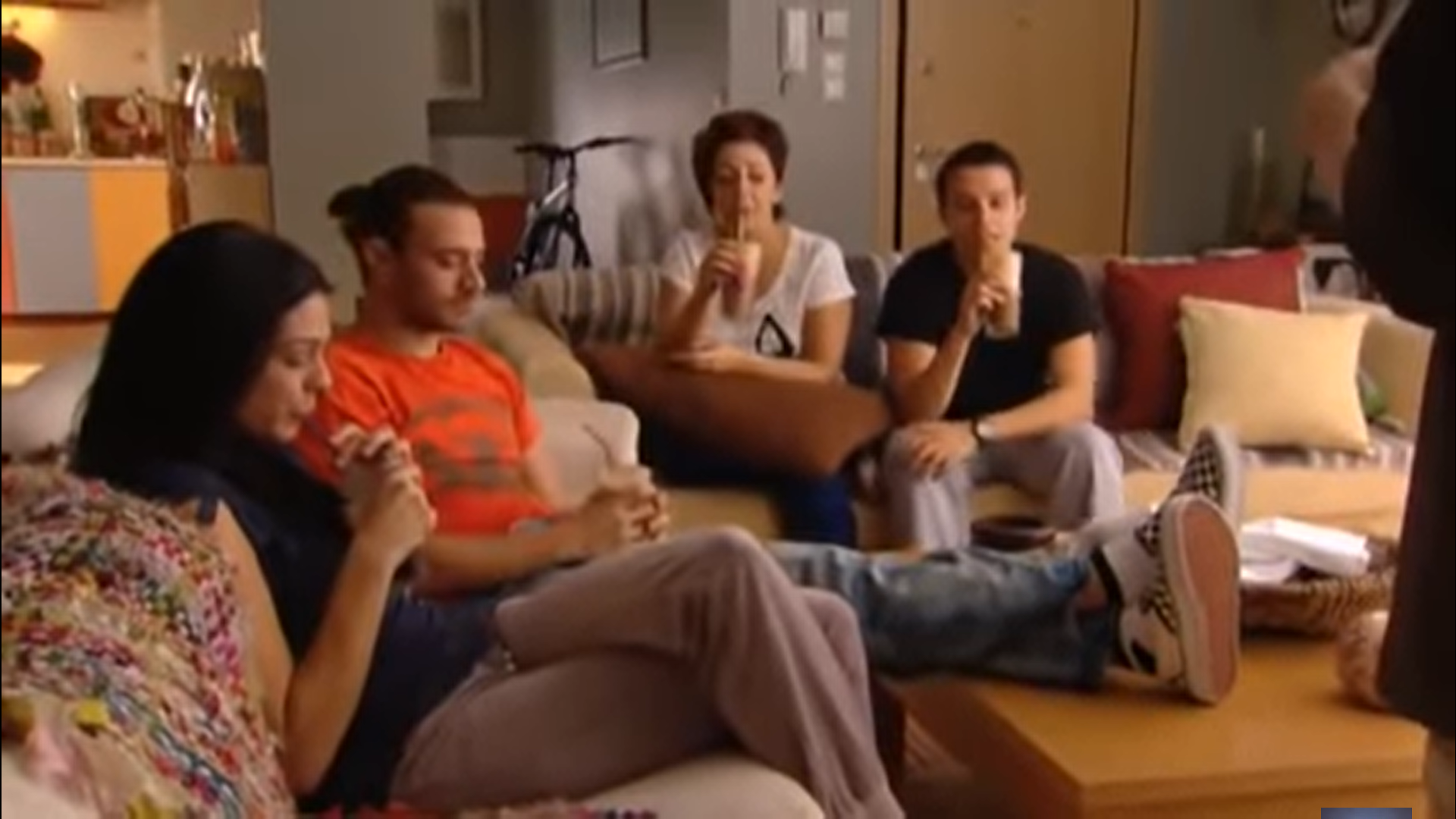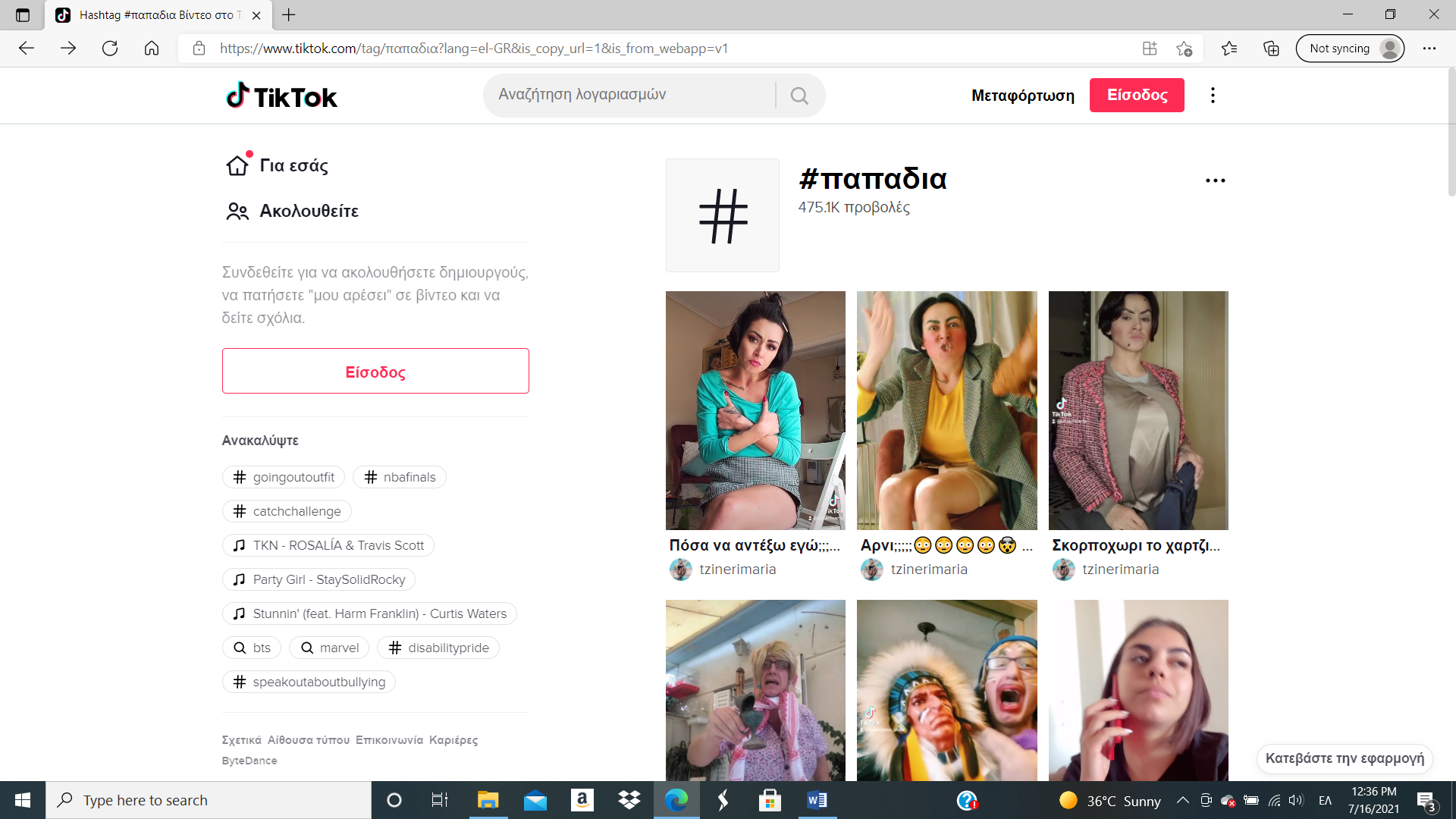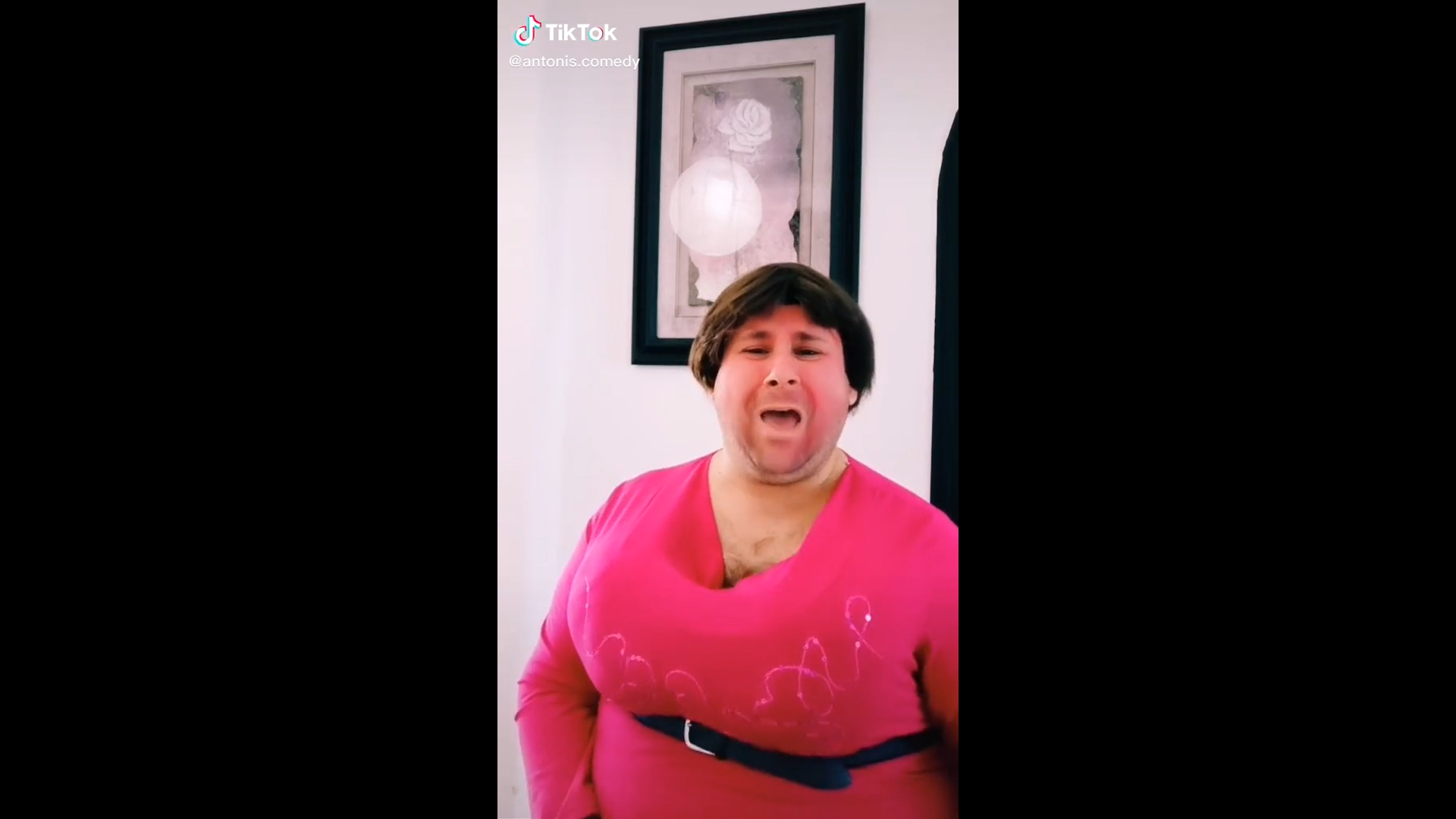Global Fandom: Ioanna Vovou (Greece)
/Ioanna Vovou (Greece)
Fandom culture is developing world wide as a phenomenon similar to what Marcel Mauss (The Gift, 1924) has described as a total social fact, relevant to and spreading at all aspects of collective life. To make a long story short, the rise and rapid development of a local tradition of fandom in Greece -as we can acknowledge it under contemporary terms and without tracing back a kind of genealogy of fandom- is to be researched in the ‘80s. At that period the development of the life style press is interlinked and promotes the first steps in forming a celebrity culture both local and international.
A crucial boost in that direction has been given with the deregulation of radio/television in the late 80s and the beginning of the 90s. At that period production and programming of national TV fiction in private TV channels implemented new and different trends as regards to the relation of TV viewers with a medium the origins of which are to be traced back in 1966 -much later than other European countries- just before the establishment of the military junta on 1967 that lasted until 1974 with severe implications in all levels of collective life (Koukoutsaki-Monnier, 2010; Papathanassopoulos, 1994; Paschalides, 2005; Vovou, 2010).
If we turn our focus to contemporary expressions of fandom in Greece, one cannot pass by the expansion of fandom in multiple fields such as TV programs, gaming, Youtubers and influencers, artists and athletes (the list can go on…), also linked with a celebrity culture and a diffused regime of visibility (as Heinich, 2012, has described it) that social media shape and accentuate.
TV series fandom
A quite stable element of Greek fandom is to be found diachronically in national TV series, starting from the ‘90s when private TV channels (and especially Mega Channel) produced a significant number of local TV series, popular to a large audience. After a period of penury in national fictional production during the years of the financial crisis mostly the first half of the 2010s, Greek TV fiction is making its strong coming back. Although comedy is considered among the most popular TV genre, it is worth mentioning the great success of the historical TV drama series Agries Melisses [Wild bees, Antenna TV, 2019-…], unfolding the life of three sisters in the Greek province during the ‘50s, which has been cherished by a large part of the Greek audience and has loyal fans, forming social media communities, expressing themselves on Facebook or Twitter. The series became a daily routine especially during the lockdowns due to the Covid 19 pandemic and, also, echoed through its plot, in the second season of the series, the Greek movement of #metoo in spring/summer of 2021. This was an element that increased the sentiment of authenticity and that of a fictional universe that matters to the audience and its real world.
Illustration n. 1
Fan craft making inspired by the TV series “Wild Bees”:
The characters of the series made by a confectioner during the lockdown
Source: Espresso, 22.08.2021 (retrieved on the 10.09.2021)
At the same time, Greek fans of international (mostly American) TV fiction are firmly present and in a constantly increasing orbit, an evolution related to the implementation of cable and streaming services (Netflix, Apple TV and so on). The pandemic period we are going through accentuates this trend. To give an empirical example coming from a personal experience, in the -pandemic- academic year 2020-2021, when asking first year students at Panteion University of Athens where I teach to choose a case study for the analysis of media products, Greek and American TV fiction was at the top of their choices, leaving far behind other genres such as news.
Diffused Intertextuality and Fandom: Mixing the local and the global
The circulation of concepts, ideas, formats, styles is a trend that characterizes in an international level TV and media production diachronically. The matrix of many media products and productions, as well as the adaptations of radio and TV shows, films, etc… seem to design a Borgesian universe. Or, in other words, the mosaique of intermedial culture can, also, be perceived as a palimpsest: if one scrubs the surface, the remaining of another writing appears. As the French literary theorist Gérard Genette (1982) have pointed out, it is quite impossible to trace back the original text (impossible to figure out the urtexte).
This intertextual yet reflexive trend is not only promoted by media productions and oeuvres; it is also acknowledged by the spectators and the fans. Τhe TV comic series broadcasted in the years of the severe economic crisis in Greece, I Genia ton 592 Evro [The Generation of 592 euros, MEGA channel, 2010 – 2011], which unfolds around the life of a group of friends, six young people trying to survive the economic crisis, is one example among many others. Some of the comments on YouTube where the episodes can be watched are quite telling, providing insights, and clues of how -in what mode- to watch the series, i.e. as a paratextual element of the text. In fact, spectators notice that characters, situations, scenes and lines are inspired from other TV series like The Bing Bang Theory (2007-2019, CBS) and Friends (1994-2004, NBC). A TV program can make a promise of referring to reality elements. The latter promise, however, in a pragmatic context of communication (which takes into consideration the eventual meanings or uses), is, or is not, acknowledged as such by the viewers. As it can be understood by the comments cited below, the relation of the series to the reality of the financial crisis is not an issue. Viewers seem to skip the pretext and go directly to the various layers of the text (Vovou, 2019).
Some of the viewers’ comments are quite eloquent in regard to intertextual citation of other media texts, in this particular case ‘flirting’ with plagiarism:[1]
“They have stolen lines, themes and characters from American series BUT the series is very good and achieves its purpose of laughing. Good lines, very good interpretations, nice directing and despite the stolen it has some original elements!!!”
“Basically it must be a little bit stolen huh?”
“Sheldon from big bang, Rachel, Ross, Phoebe and Joey from friends, Fez from that 70s show… in a collage à la grecque”
“As a TV viewer of both series I have to say that they took some elements even whole scenes from the big bang theory”
Illustration n.2
I Genia ton 592 Evro [The Generation of 592 euros, MEGA channel, 2010 – 2011]
Diffused intertextual elements (characters, situations, scenes and lines) acknowledged as borrowed from American TV series The Bing Bang Theory (2007-2019, CBS) and Friends (1994-2004, NBC) by the fans of the series
Cynical Fandom or Fandom as moquery
Besides fiction, factual entertainment television and, in particular, reality shows have nourished a kind of travestied fandom. After 20 years of reality television the mode of reception has moved to a second degree, as a semiologist would put it. Fandom shifts to moquery, into having fun at the expense of the participants and/of the situations watched on various screens. At this point, we could diagnose a turning point, a shift taking place gradually over the years to a cynical way of watching TV and of enjoying popular culture products: that of derision, not only in production strategies but, also, in consuming attitudes. This tilt to a cynical mode of consuming, is a distinct element worth examining in the context of entertainment practices and attitudes which are far from being homogenous. In a pragmatic frame of analysis, this register of reception counts on the existence of a discursive community that makes possible the ironic effect.
Parody fan culture – an intermedial genre taken over by the fans
Following this evolution of fandom as moquery, another aspect of Greek fan culture is the increasing production of parodies of Greek television programs on platforms like YouTube or on TikTok. This takes place as a fan attitude that acts on the television document by travestying and producing multiple burlesque variations. In the midst of globalization of fandom mixed with local popular cultures, the parodies of television programs, as well as the pastiches of formats (such as TV news, personal confessions or telemarketing shows) and of forms of enunciation (testimony in front of the camera, journalistic commentary, etc.) testify to the appropriation of a television culture by the fans by the means of a burlesque diversion (Jost, 2008). The concept of fandom gets broader, considered in the first as well as in the second degree, in a love-hate relationship that embraces the tradition of buffoonery.
We can find an illustrative example among many in the TV show Ta paratragouda (Tempo TV, 2001 – Alter, 2002-2011), where ‘everyday people’ who don’t get to access usually the public sphere expose their personal stories. A female participant, the ‘persona’ of “papadia” (meaning “the preast’s wife”) has triggered a series of parodies on TikTok,[2] many years later. These fandom moquery productions are retrieved by the TV show (titled nowadays Annita Koita [Annita look, after the name of the female presenter] OPEN, 2019-…),[3] implicitly self-claiming the cult value of the TV show.
Illustration n.3
The TV show of personal confessions
‘Annita Kita’, OPEN TV, 02.05.2020
Illustration n.4
#Papadia TikTok
Illustrations n. 5, 6, 7, 8, 9
Parodies of the “papadia”
Alternative media memories
Fandom parodic productions, could be considered as a certain post-media conception of TV content driven by participatory culture. The intermedial participation of audiences in the consumption of popular culture products provides a crucial element of destabilization of the dichotomous “old/new media” conceptual (and sometimes even ideological) thinking. At the same time, the parodies of TV programs on various platforms are to be perceived in their function, both informal and in the same time intense, of creating/modulating a parallel history of television based on a fragmented memory and “coming from below”, in contrast with the “institutional” history of the medium. In that sense, the way in which the parodic travestissement (which relies on a long theatrical, literary and televisual tradition) is recovered by content creators on various platforms, leaves significant traces in what we understand by “media memory” and media productions worth to be included in a TV or media “anthology” as cultural heritage.
References
Genette, G. (1982), Palimpsestes. La littérature au second degré, Paris: Seuil.
Heinich N. (2012), De la visibilité. Excellence et singularité en régime médiatique, Paris: Gallimard, « Bibliothèque des Sciences humaines ».
Jost F. (2008), « Peut-on être drôle à l’insu du public? (Parodies, pastiches et faux télévisuels) », Humoresques 28.
Koukoutsaki-Monnier A. (2010), “Greek TV fiction: diachronic evolution and production trends”, in Vovou I. (ed.), The world of television. Theoretical approaches, case study analysis and Greek reality, Athens: Herodotos, pp. 417-451. (In Greek).
Papathanassopoulos S. (1993), Liberating television, Athens: Kastaniotis. (In Greek).
Paschalides G. (2005), «Greek television», in Verinikos N., Daskalopoulou S., Cultural Industries. Procedures, Services, Products, Athens: Kritiki, pp. 173-200.
Vovou I. (2019), «Injecting Actuality in TV Fiction: The Financial Crisis in Greek TV Comedy Series», FILMICON, Issue 6, Dec. 2019. https://filmiconjournal.com/journal/article/page/93/2019/6/6
Vovou I. (2010), “Elements of a meta-history of Greek television. The medium, the politics and the institution”, in Vovou I. (ed.), The world of television. Theoretical approaches, case study analysis and Greek reality, Athens: Herodotos, pp.93-140. (In Greek).
Ioanna Vovou is an Assistant Professor at Panteion University of Social and Political Sciences (Athens, Greece), in the Department of Communication, Media and Culture. She has also the title of « Maître de Conférences » in the French Public University “Université Paris XIII” where she was teaching for the period 2002-2007. She is a full member of the « Centre d’Etudes des Images et des Sons Médiatiques » (CEISME/CIM, University of Paris III-Sorbonne Nouvelle). Her research interests focus on the relation between the media and the society, on media analysis and on Television studies. She is participating in international research projects and is the author of essays dealing with the history of television, the political talk shows on Greek television, social representations in reality TV and TV fiction, gendered representations in the media, intermediality and media archeology.
[1] Available at: https://www.youtube.com/watch?v=n_vaerIh_9w, last access 8 September 2021.
[2]https://www.tiktok.com/tag/%CF%80%CE%B1%CF%80%CE%B1%CE%B4%CE%B9%CE%B1?lang=el-GR&is_copy_url=1&is_from_webapp=v1, accessed at 09.09.2021.
[3] Excerpt from the show on YouTube: https://www.youtube.com/watch?v=OTyMk3tITQQ, accessed at 09.09.2021.










